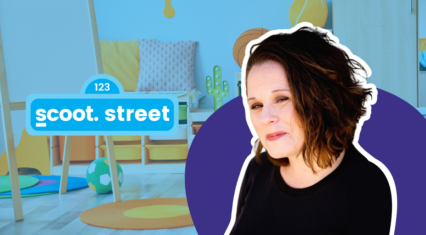Search
Get started
Log into your referral dashboard
Becoming a new teacher is so exciting but it can feel overwhelming from managing your first classroom to navigating school policies.
Many of our new teachers are always brimming with both excitement and anxiety when their first day of class is around the corner. It’s natural to feel this way!
Here are our top 10 tips new teachers should know before they dive into the start of their teaching career.
1) Find a mentor
When starting out, it’s normal to have doubts. At least for the first year, you won’t have all the answers, but it’s important to appear confident even if you feel unsure.
If you get stuck, seek guidance from veteran teachers. They are often willing to share their experiences and lesson plans with new teachers. There might be a potential mentor right next door!
Ask ALL of your questions to gain as much information as you can.
You can also seek out any formal mentoring programs. There are also virtual mentoring groups where educators around the globe can support you!
2) Work backwards
Just thinking about all those lesson plans you need to create can easily overwhelm you.
You need to ask yourself, “What do I want my students to learn today?”
When designing a lesson, establish your academic goal and work backwards from there.
Consider implementing a method to quickly and regularly track student learning. One way is to use exit tickets – index cards on which students write what they learned. Review these at the end of the day to see if you’ve achieved your teaching goals.
3) Remember to take breaks
Rule of thumb, children can generally sit still for a time equal to their age plus two minutes.
Brain breaks are a must to get students focused while promoting learning.
If you don’t give kids a chance to move, they’ll find a way to move on their own. Sitting in a seat all day listening to a lecture is difficult!
Take control and get moving. If you see students start to glaze over (they give a zombie-like look), then it’s time for quick break to stretch or dance.
Your brain will thank you too!
4) Find teachable moments
Teach to your students’ interests which creates a more engaging way to learn and mitigates behavioral issues. Double whammy!
Teachable moments will happen when you least expect them but pay attention to your students’ questions and what makes them curious.
Harness that curiosity and seek out ways to answer their questions through research, group discussions, hands-on activities, and/or assigned projects.
Doing also will help you build stronger connections with your students.
5) Create a classroom community
Don’t just be the student’s friend, your class needs to respect you and your rules first.
There will be times when students will try to push all of your buttons, especially since you’re a new teacher! Trust us, kids know when you start getting flustered.
Make sure you set clear classroom expectations, giving them ownership and accountability of proper rules and consequences. Whenever something happens, follow through with consequences.
Note positive behavior from across the class and call it out. Students will want to emulate that behavior.
If and when you need to discipline a student, do so privately. Ask clarifying questions to find the root of the problem and hold them accountable to the classroom’s expectations.
6) Connect with parents
Keep in touch with parents through daily, weekly, or monthly emails.
Be transparent and reach every family with at least one positive note or shout-out about their student.
Start a weekly newsletter to keep them in the loop or use a classroom app like ClassDojo, as a virtual community with teachers and parents supporting students’ growth through goal-setting, feedback, and celebration.
7) Build professional relationships in your school
As a new teacher, you might not know anyone in the school. It’s time to acquaint yourself!
Establish relationships with other employees in the building, not just the teachers. Get to know all the other people who help the school run smoothly, like the building maintenance, front-desk folks, nurses, and cafeteria folks.
You’ll never know when you might need their support.
8) Be kind to yourself
Teaching requires energy. If you don’t take care of yourself, you’ll be burnt out before you realize it.
Commit to making time for rest and relaxation.
The first few weeks of a new school year can leave you depleted quickly so eat well, get a good night’s sleep, breathe deeply, and dance freely.
Make time for yourself either to re-left, re-energize or simply to treat yourself.
9) Read, read, read
Education and teaching are constantly evolving with new methods and pedagogies.
Equip yourself and seek professional development to grow as an educator through reading. The more you grow and learn, the better prepared you’ll be to cultivate a safe space for learners from all kinds of different backgrounds.
10) Remember your passion
As a new teacher, you might have a high motivation and passion for teaching or you’re jumping into the fray to see how you fare.
Keep your curiosity and willingness to help out anyway you can, especially when it gets tough.
Constantly motivate yourself and let you passion flourish in your work, life, and classroom. The students will definitely feel how much you care.
Remember that it’s already amazing you’ve gotten so far. You’re a brand new teacher about to enter your first classroom! Congratulations!
We hope these 10 tips for new teachers help you succeed and grow in your teaching career.
Now, go out and crush it!


![How to write a strong substitute note [+free template!]](https://scoot.education/wp-content/uploads/2022/05/thank-you-426x235.png)



